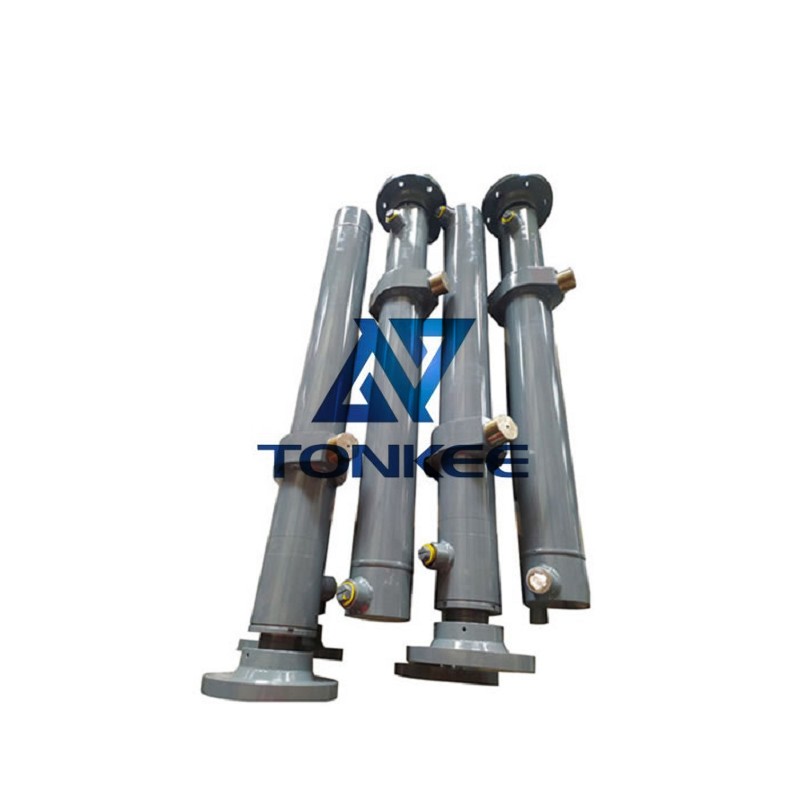
Size and Capacity: Hydraulic cylinders for large square balers are designed to handle substantial loads.
They typically have a bore diameter ranging from 5 to 8 inches (127 to 203 mm) and a stroke length of 40 to 60 inches (1016 to 1524 mm). The bore diameter and stroke length are selected based on the baler's capacity and the density of the material being baled.
Material: These cylinders are constructed from high-strength materials like steel or alloy to withstand the immense forces and pressures encountered during the baling process. The use of durable materials ensures the longevity of the cylinder and minimizes maintenance requirements.
Pressure Rating: Hydraulic cylinders for large square balers are designed to operate at high pressures, typically in the range of 2,000 to 3,000 psi (13,789 to 20,684 kPa). This high pressure is essential for generating the force required to compress the crop material into dense bales efficiently.
Seals and Gaskets: To maintain hydraulic fluid integrity and prevent leaks, hydraulic cylinders are equipped with high-quality seals and gaskets. These seals are made from materials like polyurethane or rubber, designed to withstand high-pressure conditions and provide a reliable, long-lasting seal.
Rod Diameter: The cylinder's rod diameter, which connects to the baler's plunger, is crucial for ensuring a stable and robust connection. It typically ranges from 2 to 4 inches (50.8 to 101.6 mm), depending on the specific baler model and capacity.
Mounting: Hydraulic cylinders can have various mounting options, including clevis mounts, flange mounts, and trunnion mounts.
The choice of mounting style depends on the baler's design and how the cylinder integrates with the rest of the machinery.
Rod End Options: Hydraulic cylinders may have different rod end options, such as spherical bearings or bushings, to accommodate the movement and alignment required during the baling process. These options help reduce friction and wear on the cylinder components.
Stroke Control: Many large square balers feature advanced hydraulic systems that allow for precise control of the cylinder's stroke length. This feature enables operators to adjust the bale's size and density according to their specific needs.
Corrosion Resistance: Agricultural equipment operates in various environmental conditions, including exposure to moisture and corrosive materials. Hydraulic cylinders are often treated with corrosion-resistant coatings or materials to protect against rust and degradation.



 English
English Türkçe
Türkçe


